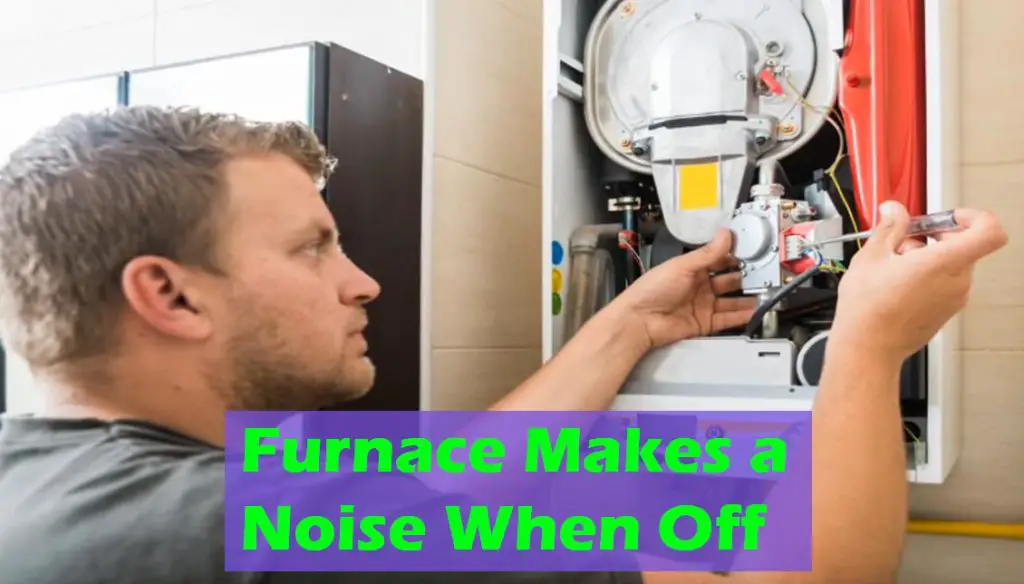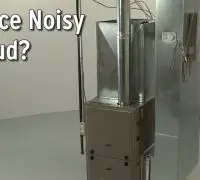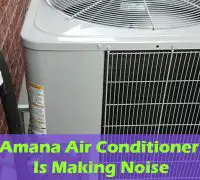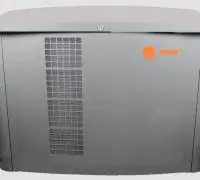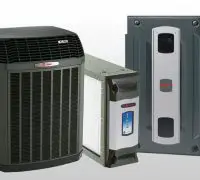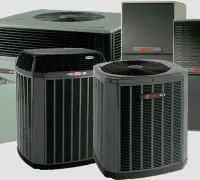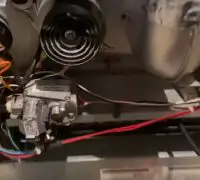It’s common for appliances to make some noises when they operate. Some of the noises are expected, whereas others will indicate various problems. It’s the same with furnaces, as they can make all sorts of sounds, especially when something is wrong. Low humming noise in the furnace when off means that some of its components are defective and require repair or replacement.
A broken capacitor, damaged furnace blower, loose ductwork and several other issues can make the furnace produce a humming noise even when it doesn’t operate. Learn about the solutions and take the necessary measures to prevent further and more severe damage to the furnace.
Page Table of Contents
Why does the furnace make noises when off?
Even if some sounds are expected when the furnace is operating, it’s not normal to make noises when it’s off. The issues come for various components and the severity of the problems leads to repair or replacement.
Here are some reasons why the furnace has a humming sound:
The furnace blower is damaged
A damaged furnace blower is the most common cause of the furnace’s humming noise. The blower has to spread warm air from the ductwork throughout the house. If you hear humming noises, the blower has failed or is close to breaking.
If the humming is persistent, the blower is faulty. A low amperage or disconnected connections in the blower can also cause noise. The best way to discover the cause of the humming is to have a certified technician check the furnace out.
The capacitor is broken
The capacitor helps the furnace start and run. Should it break, the entire furnace may fail at some point. The capacitor will make a humming noise because it slows down or even stop the motor from turning.
If you notice low airflow and humming noises, the capacitor has failed. You will have to replace the motor and capacitor for the furnace so that everything goes back to normal.
The ductwork is loose
Check out the ventilation, as humming could come from the furnace or nearby. Sometimes, loose ductwork connections make the sound, not the furnace—air coming through the furnace’s ducts with pressure. Since the screws will wear in time, they are expected to get loose.
Look at the ductwork; some screws could be loose or about to get loose, making a humming sound.
The transformer is malfunctioning
As electricity goes through the transformer, the unit can vibrate and cause low humming noise. If that’s the case for your furnace, you don’t need to stress too much.
Failure or poor installation will generate loud noises. Should it be an issue with bolt security, you can manage it on your own. However, you must contact a certified HVAC technician to reposition or replace the transformer.
Remember that a transformer making loud humming noises on an old furnace can only be solved by replacing the whole furnace.
The wiring is defective
Problems with the electricity flow and wiring inside the furnace can also generate a humming or buzzing sound. It happens to the rest of the furnace’s components, such as the thermostat, the blower, etc.
Loses wires will cause a persistent humming when the furnace is operating. The fire risk is high when the wiring is defective and two bare wires touch. If you notice a humming noise from your furnace, contact the pros to avoid severe damage to your house and your family.
Dirt Clogging
Service the furnace at least once a year to keep everything up and to run. If you skip professional maintenance, the dirt and debris will build up and cause problems. For instance, dirty gas burners can generate humming noises. Sometimes, a good cleaning will be enough. However, the problem and escalation lead to issues with the ignition, gas supply, and performance.
Why Is My Furnace Humming When It’s Off?
With natural gas furnaces, the main reason for humming when off is the poor adjustments on the blower’s pilot light. It would help if you readjusted it to the proper level to solve it.
When the furnace is properly running, the gas is released when you turn on the furnace to heat the house. The pilot light will ignite the gas and pumps it into the primary burner. Should the pilot light be defective, the furnace won’t generate heat as the burners don’t ignite. You will have to relight the pilot light, identify the reset switch, and light it up manually.
If you have an electricity-powered furnace, humming noises can occur for various reasons, such as poor connections with the transformer or issues with ductwork.
Can you stop the furnace from humming?
It depends on the issue if you can stop the humming noise of the furnace or not. Some problems have easy fixes, whereas others will request professional attention. Here are some methods to control the furnace from making humming noises:
Replace the faulty parts
The most straightforward solution to problems with the furnace parts is to replace them. The answer is not always the cheapest one, though. A replacement could be the only solution if the furnace components are defective beyond repair.
Tighten the screws
Loose bolts or connections with furnace parts or ductwork can cause humming sounds. Simply screwing the dislodged bolts tightly could be enough.
Stick to a maintenance routine
If you skipped regular maintenance for your furnace for some time, you should do it. Cleaning and lubricating the parts can be the only way to eliminate the humming. Regular maintenance expands the durability of the furnace and removes the need for the replacement of the parts. Here’s what essential maintenance of your furnace should include:
Clean the filter
The furnace’s filter removes dust, mites, bacteria, spores, and particles from spreading inside the house. The air flow will be slow and less efficient when the filter is dirty. Clean or replace a dirty or clogged furnace filter. Most furnace filters have a good lifespan but need replacing after some time.
Check out the blower motor
For the furnace to perform as expected, its blower should also function correctly. The blower includes several parts and they all count for its proper running. Should any problems occur with the blower motor, you need to solve them immediately to avoid further complications.
Check out ductwork and ventilation
The furnace needs adequate air circulation to work as it should. No furniture, objects, or dirt should block the vents. You have to check out the vents and ductwork from time to time and clean them whenever necessary.
Start by shutting off the furnace and the primary power source. Remove the covers and floor registers, and vacuum scraps or dirt within the vents. You can also use a clean cloth or some soapy water to clean them
Reduce the heating load
You can decrease the HVAC system’s heat load by detecting the sources of heat loss around your house. Increasing energy efficiency without losing comfort is something we all want. You can achieve the goal by weather stripping the doors and windows, insulating ductwork and foundation, and sealing leaks and gaps.
Contact professionals for repair work
When DIY remedies don’t give results, you need to contact professionals for repair work. They have the knowledge, experience, skills, and equipment to manage any problem with your furnace.
In closing
Unless the humming noises become louder, they are pretty natural with furnaces when operating. However, you should investigate if the humming noises occur when the furnace is off, as furnace parts or ductwork may have developed some problems.
